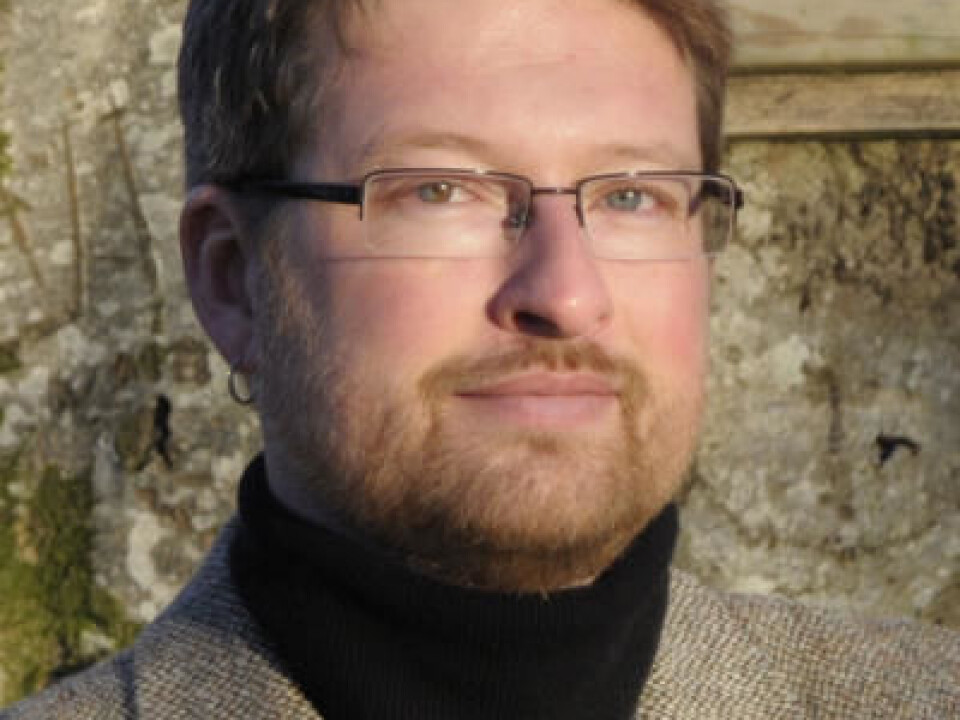
Law and justice: Swearing an oath in the Middle Ages was powerful evidence
In the 13th century, rumour meant a lot. If the village gossiped that you had been unfaithful, you could be put on trial. You then had to find people who would swear you were innocent.
In 13th century Norway, the law makes it clear that reputation was important. If you had a bad reputation, you could simply end up in court.
“This was a society built on honour. Reputations had real power in a village,” says historian Ole-Albert Rønning Nordby. “We think that people are fragile and easily offended today, but it fades in comparison to this period, when defamation was really dangerous.”
Nordby has his doctorate from the University of Oslo on medieval law.
“If there were rumours that you were unfaithful and you were unable to formally deny the rumour, you could be punished. Rumour had the power of evidence,” he said.
Prosecuted for adultery

The only way to disprove accusations based on rumours during this time was to swear you were telling the truth.
You could also get help from others who would stand up for you. During the Middle Ages, trust was important.
Every trial began with one person suing another — whether for adultery or murder.
People in the community were brought in to help determine what had actually happened.

If there were no eyewitnesses to the alleged crime, it was all the more important to swear that you were telling the truth, Nordby said.
"In this situation, the disagreement was not so much about the defendant's adultery, but more about his or her reputation as an unfaithful person," Nordby explained in his dissertation.
Not the type to be a criminal
Swearing an oath means you promise to tell the truth.
Legal texts suggest that people took these vows very seriously in the Middle Ages. Up to eleven people could swear in support of the defendant.
They commented on the question of guilt and considered what they thought was most likely. The more serious the case, the more people had to swear.
“They are what we would call character witnesses today. To be acquitted, everyone had to say that this person is not the type to have committed the crime,” Nordby said.
Guilty until the opposite is sworn
Whoever helped the defendant by swearing an oath could be of higher rank than the defendant, but never lower.
The rich and powerful probably didn't want to risk having a freed slave who would swear an oath that would convict them, Nordby said.
If you didn’t have friends or family who would stand up for you, it would be difficult for you to be believed.
Today, defendants are innocent until proven otherwise. It was the other way around. The burden of proof lay with the accused.
“It was largely about having a good reputation, high status and what services you could give back,” Nordby said.
Sworn on sacred texts
There are no written sources about oaths in litigation before the 1300s in Norway, but a letter from 9th-century England shows that sworn oaths could be horse-traded.
For example, one man who had a reputation for being a thief had a hard time getting someone to stand up for him when he was accused of the same crime again.
So he went to a powerful person and was able to “borrow” people who would swear an oath for him. The price for this service: the accused gave the powerful person his landholdings.
Oaths were probably important as early as the Viking Age. But where the Vikings swore on objects such as swords and rings, only sacred texts were acceptable in the 13th century.
This is not unlike today's American courtrooms, where witnesses and defendants swear to tell the whole truth, and nothing but the truth, on the Bible.
Sworn oaths used as evidence
Today, it seems a little thin to build a trial on witnesses who say that they don’t believe the defendant would commit a crime.
But this was considered solid evidence in the Middle Ages.
Swearing was a rational way for them to address the situation they were in, Nordby says.
“Technical evidence was unknown. So you have to have some way to make a decision about things you don't know,” he says.
“The community valued openness,” he said. “For example, your punishment would be far less if you said you had killed someone than if you did not admit it.”
These legal texts tell us a lot about how society worked at that time, Nordby believes.
Rumours had to be addressed
So does Jørn Øyrehagen Sunde, a professor at the University of Bergen. Sunde is a lawyer who is an expert in legal history. He was on the committee that assessed Nordby's thesis.
“Nordby has made a very important contribution by studying how oaths may have worked in practice,” he says.
Sunde notes that few people have studied this issue.
“Those rules are so difficult to understand, I've struggled with them myself,” he said.
Documents from England and France suggest that litigation in those countries was also often related to confirming or denying rumours.
“It seems logical that this was the case in Norway as well, because people lived so close to each other. Rumours would lead to unrest that could destroy the community. For this reason, they had to be addressed as soon as possible,” Sunde said.
Reference:
Ole-Albert Rønning Nordby: The Judicial Oath in Medieval Norway. Compurgation, community and knowledge in the thirteenth century. Doktoravhandling ved Institutt for arkeologi, konservering og historie, Universitetet i Oslo, 2018.
----------------------------------------
Read the Norwegian version of this article at forskning.no































